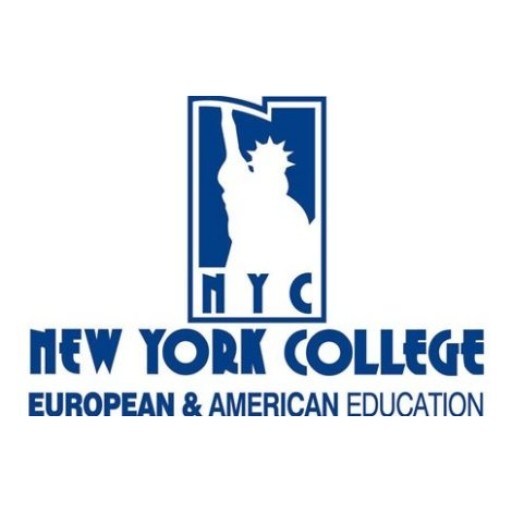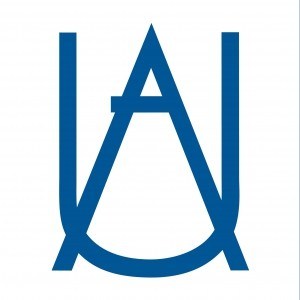Photos of university / #sunderlanduni
The BA (Hons) in Media and Mass Communications at the University of Sunderland offers students a comprehensive understanding of the dynamic and ever-evolving media landscape. This programme is designed to develop critical thinking, practical skills, and theoretical knowledge necessary to succeed in various media-related careers. Throughout the course, students will explore a broad range of topics including media theory, journalism, digital media production, advertising, public relations, and cultural studies. Emphasizing both academic rigor and practical application, the programme prepares graduates to adapt to the fast-changing media environment and engage with contemporary issues such as media ethics, representation, and audience engagement. The curriculum is structured to provide a balanced blend of lectures, seminars, workshops, and industry placements, ensuring students gain real-world experience alongside academic learning. Students will have access to state-of-the-art facilities and equipment, enabling them to develop skills in video production, audio editing, online content creation, and media management. The programme also encourages independent research and critical analysis, fostering a deeper understanding of media influences and societal impacts. Collaboration with media industries and opportunities for internships play a key role, facilitating networking and enhancing employability. Graduates of this degree are well-equipped to pursue careers in journalism, broadcasting, digital media, marketing, public relations, media planning, and content creation, among other fields. The University of Sunderland’s supportive learning environment, experienced academic staff, and links with industry partners ensure students receive guidance and mentorship throughout their studies. Upon completion, students will be able to critically evaluate media messages, produce compelling content, and contribute effectively to media organizations and communication campaigns. The programme adheres to high academic standards, promoting independent thinking, creativity, and professional development, making it an ideal choice for those passionate about exploring the media world and shaping public discourse in a variety of contexts.
The BA (Hons) in Mass Communications at the University of Sunderland offers students a comprehensive and dynamic education designed to equip them with the essential skills and knowledge required for a successful career in the rapidly evolving media industry. Throughout the programme, students explore a wide range of topics including media theory, journalism, broadcasting, digital media, public relations, and advertising, providing a broad understanding of the communications landscape. The curriculum emphasizes practical experience, encouraging students to develop their technical skills in multimedia production, content creation, and digital storytelling. Students have access to state-of-the-art facilities and industry-standard equipment, enabling them to produce professional-quality work. The programme also fosters critical thinking and analytical skills, enabling students to evaluate media content and understand its societal impacts. With opportunities for work placements, internships, and project-based learning, students can gain valuable industry insights and establish professional networks. The course is designed to reflect current industry trends and technological advancements, ensuring graduates are well-prepared for employment or further study. Throughout their studies, students are supported by experienced academic staff who are experts in their fields, providing mentorship and guidance. The programme culminates in a major project or dissertation, demonstrating students' ability to independently research and produce high-quality work. Graduates of the Mass Communications programme are highly regarded by employers in journalism, broadcasting, public relations, media production, and digital marketing sectors. This versatile qualification opens doors to diverse career opportunities and provides a solid foundation for those wishing to advance into postgraduate study or media entrepreneurship. The University of Sunderland’s commitment to employability and industry engagement ensures that graduates are equipped with the practical skills, theoretical knowledge, and professional confidence to thrive in today's competitive media environment.
Programme requirements for the BSc (Hons) Mass Communications at the University of Sunderland typically include A-levels or equivalent qualifications, with a preferred UCAS Tariff score of 48 points or above. Applicants should demonstrate an interest in media, journalism, or related fields through prior study or experience. A-level subjects in media, English, or related disciplines can be advantageous but are not mandatory. For international students, a recognized English language proficiency test such as IELTS with a minimum score of 6.0 overall, with at least 5.5 in each component, is usually required. The admission process may also consider personal statements that showcase enthusiasm for media studies, relevant work experience, or extracurricular activities related to communication and media. Work experience in media environments, such as journalism, broadcasting, or advertising, can strengthen an application but is not compulsory. The university values diverse backgrounds and encourages applications from mature students or those with alternative qualifications demonstrating equivalent academic capability or relevant industry experience. Applicants must meet the general entry requirements of the university, which include having completed formal education to a level suitable for undergraduate studies. Additionally, applicants may be asked to attend an interview or submit a portfolio if applicable, depending on the competitiveness of the application cycle. The programme is designed with a combination of theoretical knowledge and practical skills, so enthusiasm for coursework involving media production, analysis, and communication practices is essential. International students should ensure they provide all documentation in accordance with UK visa requirements, including valid passport details, financial proof, and academic transcripts. The university reserves the right to assess each application on an individual basis, considering personal circumstances and achievements outside of formal qualifications. Overall, prospective students are encouraged to demonstrate a genuine interest in mass communication and media industries, as well as a willingness to engage with both theoretical concepts and practical projects to succeed in the programme.
The University of Sunderland offers a variety of financing options for students enrolling in its Mass Communications program. Prospective students can explore a range of funding sources to support their studies, including governmental loans, grants, scholarships, and bursaries. For UK residents, the Student Loans Company (SLC) provides tuition fee loans and maintenance loans, which can cover the cost of tuition fees and living expenses. International students are advised to seek information on scholarships and financial aid specific to their country of residence or from university-specific awards. The university also encourages students to apply for scholarships that recognize academic excellence, talent, or financial need, which can significantly reduce the overall cost of their education. In addition, students are encouraged to look into external funding opportunities, such as industry-sponsored scholarships or bursaries from charitable foundations. The University of Sunderland also offers part-time work opportunities on campus, allowing students to earn while they learn, thereby easing financial pressures. Finally, students are advised to carefully consider their budget and financial planning prior to enrollment and during their studies to manage expenses effectively throughout their academic journey.
The BA (Hons) in Mass Communications at the University of Sunderland offers students a comprehensive understanding of the dynamic and rapidly evolving media landscape. This program is designed to equip students with the essential skills and knowledge required to succeed in various fields within the media industry, including journalism, broadcasting, public relations, advertising, and digital media. The curriculum emphasizes practical experience alongside theoretical learning, allowing students to develop critical thinking, media production abilities, and an understanding of media ethics and legislation.
Throughout the course, students explore a range of topics such as media theory, communication studies, media writing, digital media production, and the impact of social media on contemporary communication. The program also provides opportunities for students to engage in hands-on activities like video and audio production, editing, and content creation for different media platforms. Emphasis is placed on developing both technical skills and strategic communication techniques to prepare graduates for the competitive media environment.
The University of Sunderland's facilities support experiential learning, including modern studios, editing suites, and media labs, enabling students to work on real projects and produce professional-quality content. The program further encourages students to critically analyze current issues in mass communication, fostering an informed perspective on the role of media in society. Students also have access to industry placements, giving them valuable work experience and networking opportunities with media organizations.
Graduates of the program are prepared for diverse careers in media and communication sectors, including media production, broadcasting, digital marketing, public relations, and journalism. The program aims to develop adaptable, innovative, and ethically responsible media practitioners who can meet the demands of the fast-changing media industry. Overall, the BA (Hons) in Mass Communications at Sunderland combines academic rigor with practical skill development to give students a solid foundation for a successful career in the media world.








